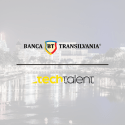In recent years, Romania has emerged as one of the most promising destinations for technology-driven businesses, offering a powerful blend of highly skilled professionals, a cost-effective yet high-quality workforce, and a business-friendly environment. Multinational corporations and ambitious startups alike are establishing R&D centers, tech staffing solutions, and product development teams in the country, drawn by its dynamic tech ecosystem and innovation-driven culture. But what exactly has fueled Romania’s remarkable rise as a tech talent powerhouse, and why are global companies increasingly choosing this Eastern European nation for their development needs? Let’s explore the key factors that have made Romania a prime destination for cutting-edge technology and research.
A Robust Educational System Producing World-Class Tech Talent
One of the biggest drivers behind Romania’s rise in technology is its well-developed STEM-focused educational system. Universities such as the Polytechnic University of Bucharest, Babeș-Bolyai University in Cluj-Napoca, and the Technical University of Iași have long been recognized for producing top-tier graduates in programming, artificial intelligence, cybersecurity, and software engineering.
Romanian developers are known for their problem-solving skills, advanced technical expertise, and strong participation in international programming competitions. The country has also fostered a culture of continuous learning, with many professionals engaging in coding boot camps, online courses, and hackathons to stay at the forefront of technological advancements.
Beyond formal education, Romania has a growing number of technical training institutions and IT academies offering specialized courses in cloud computing, big data analytics, and DevOps, ensuring that the workforce remains adaptable to the fast-changing demands of the tech industry. Additionally, collaborations between universities and tech companies have led to industry-driven curricula, internship programs, and research projects that prepare graduates for real-world challenges in the tech sector. These partnerships are bridging the gap between academia and industry, ensuring that Romania's tech professionals are equipped with the latest skills and knowledge.
The country has also seen a rise in international tech partnerships, allowing Romanian students and professionals to gain exposure to cutting-edge global trends. This has contributed to a workforce that is not only technically skilled but also fluent in multiple languages and accustomed to working in diverse environments.
A Growing Hub for R&D and Innovation
Unlike traditional outsourcing, Romania is increasingly becoming a hub for R&D and product development centers, where companies invest in innovation rather than just cost efficiency. Global enterprises and high-growth startups are setting up R&D hubs to leverage Romania’s high concentration of skilled engineers and researchers.
These R&D centers are focused on AI research, machine learning advancements, software engineering, and cybersecurity solutions. This shift from outsourcing to high-value tech innovation is helping Romania position itself as a leader in cutting-edge technology, bridging the gap between Western Europe and the global digital economy. With the establishment of specialized R&D zones and tech parks, Romania is rapidly evolving into a premier destination for deep-tech advancements and product innovation.
Furthermore, Romania’s commitment to fostering research is evident in its growing number of industry-funded technology projects, collaborations with European innovation networks, and the rise of specialized institutions dedicated to AI, robotics, and quantum computing. The presence of innovation incubators and accelerators has further propelled the growth of deep-tech startups, many of which are developing solutions in autonomous systems, smart manufacturing, and digital health technologies.
Tech Staffing and Dedicated Development Teams
For businesses looking to scale efficiently, Romania offers a flexible and scalable tech staffing model, providing access to specialized talent while maintaining agility. Tech staffing and dedicated development teams allow companies to build long-term teams with deep expertise in software development, DevOps, blockchain, and AI without the constraints of traditional hiring models.
Tech staffing agencies and talent acquisition firms in Romania specialize in matching companies with the right IT professionals, ensuring that businesses can expand their development capabilities without the hassle of recruitment overhead. This model has become increasingly attractive for startups and enterprises looking for long-term collaborations with top-tier engineers.
Additionally, hybrid staffing models are becoming popular, where companies combine in-house teams with remote experts from Romania, benefiting from cost efficiency while maintaining strong development capabilities.
Romania’s well-developed coworking and remote work culture ensures that tech professionals can collaborate seamlessly with international teams, further enhancing its appeal as a top destination for global tech staffing.
The availability of specialized IT training programs and certification courses tailored to the needs of international businesses ensures that Romanian developers stay ahead in emerging technologies such as cloud-native development, cybersecurity, and AI-driven automation.
Competitive Costs with High-Quality Talent
While Romania offers top-tier tech talent, it remains a more affordable alternative compared to Western Europe and the United States. The country’s competitive salary levels allow businesses to invest more in R&D, product innovation, and business expansion rather than high operational costs.
At the same time, the cost advantage does not come at the expense of quality. Romanian engineers are known for their technical excellence, adaptability, and ability to work in agile, fast-paced environments, making them a prime choice for companies looking for high-performance development teams.
The country’s strong support for remote work and digital collaboration has also made it a favorable location for distributed teams, ensuring smooth operations for businesses relying on digital infrastructure. Additionally, Romania’s growing reputation for tech meetups, hackathons, and industry conferences fosters a highly competitive and innovative environment where talent continually sharpens its skills.
Romania’s low operational costs, coupled with high availability of skilled developers, makes it an ideal destination for startups and global enterprises looking to scale their engineering teams efficiently.
A Thriving Tech Ecosystem and Startup Boom
Romania is not only attracting established tech companies but is also home to a rapidly growing startup scene. Cities like Bucharest, Cluj-Napoca, Timișoara, and Iași have become innovation hotspots, producing high-growth startups in fintech, AI, cybersecurity, and SaaS.
With strong support from incubators, accelerators, and venture capital firms, Romania is fostering a new generation of tech entrepreneurs who are driving disruptive solutions in global markets. The country’s entrepreneurial spirit, combined with a highly skilled workforce, makes it an attractive destination for both investors and companies seeking to collaborate with emerging innovators.
Industry-driven private investment initiatives and EU-funded tech programs are also playing a crucial role in providing resources, funding, and mentorship for startups, further strengthening Romania’s position as a technology-driven economy. Moreover, the rapid rise of deep-tech startups focused on areas like biotechnology, autonomous systems, and green energy solutions is positioning Romania as a leader in next-generation technological advancements.
Future-Proofing the Tech Industry
As Romania continues to strengthen its position as a global tech talent hub, the country is making significant investments in digital education, infrastructure, and emerging technologies such as AI, blockchain, and cybersecurity. With the rise of remote work and distributed development teams, Romania is set to play an even greater role in the global digital economy.
For companies seeking R&D centers, tech staffing, or dedicated development teams, Romania offers all the essential ingredients to drive digital success. With its highly skilled workforce, innovation-driven mindset, and thriving tech ecosystem, Romania is not just an outsourcing destination—it is the future of technology and innovation.
Conclusion
Romania’s transformation into a leading tech talent hub is a testament to its strong educational foundation, culture of innovation, and strategic business environment. As businesses move beyond traditional outsourcing models, Romania stands out as a prime location for R&D, tech staffing, and long-term product development. With the digital revolution reshaping industries worldwide, Romania is set to remain a key player in the future of technology, offering companies the talent, expertise, and infrastructure needed to drive groundbreaking innovation on a global scale.



